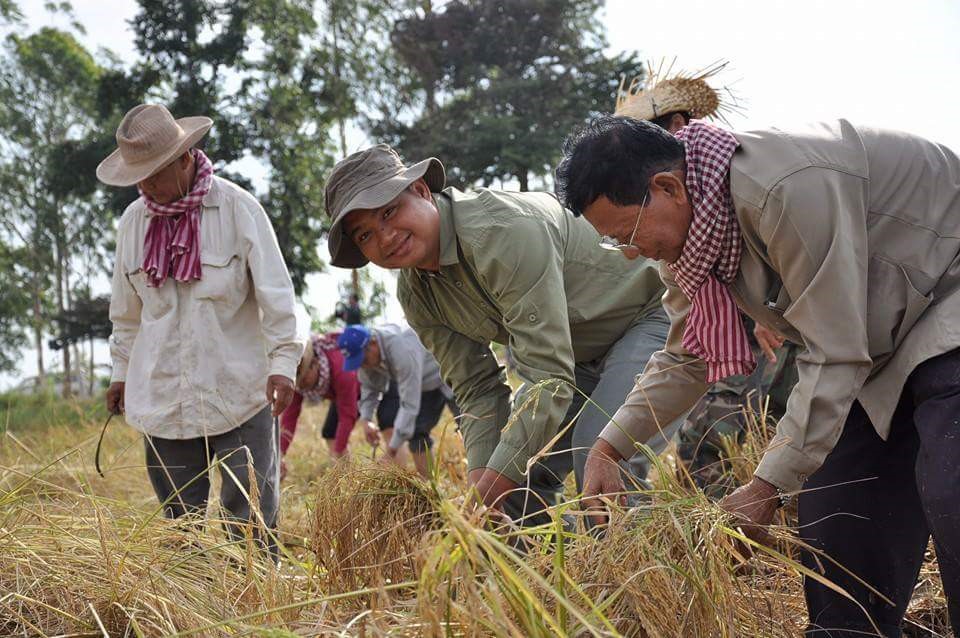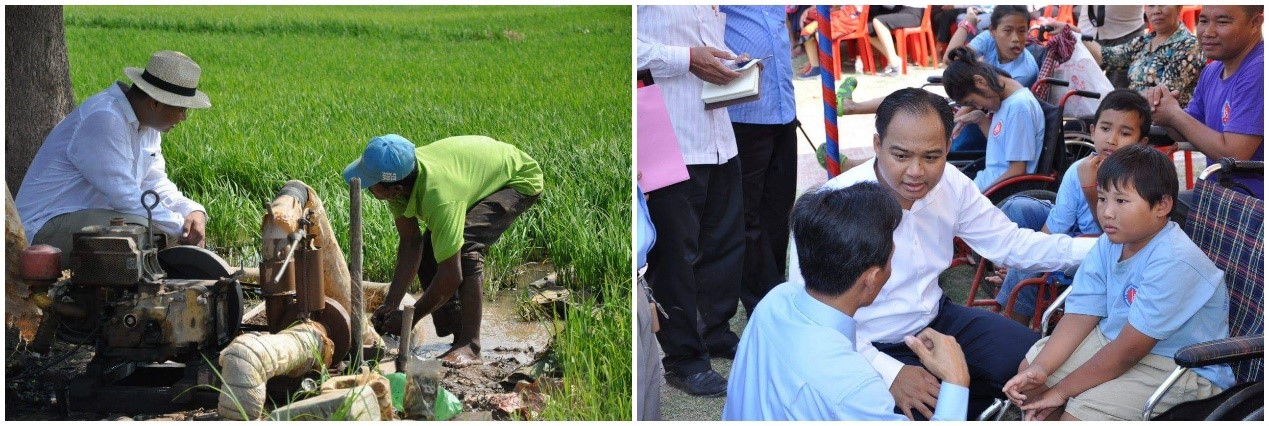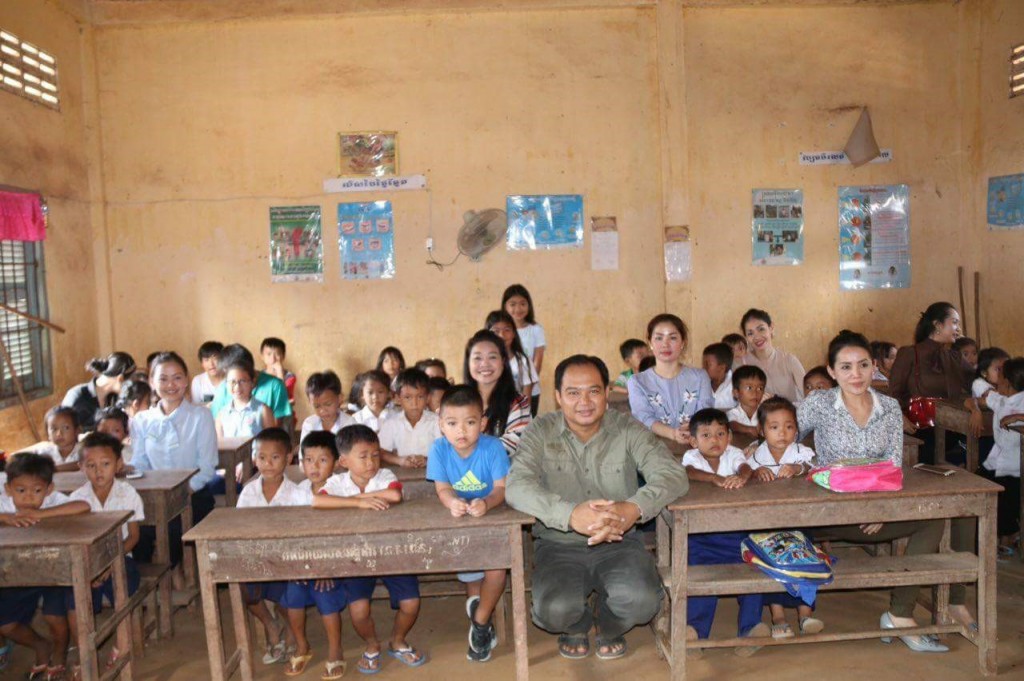
Rithy Kim
Vice Governor of Kandal Province
Cambodia
LinkedIn:
https://kh.linkedin.com/in/kim-rithy-293b7157
[ALUMNI-INFO TEXT="Change is good. I believe that if you’re young, you should change jobs, and change often! A lot of people look for security, but change gives you reason to start afresh and you’ll learn more. You’ll also get to know more people and build your network—that is your social capital, which can help you get ahead in your career.
I have an educational background in criminal justice; I served in the police force for a while and enjoyed it, as there’s no better satisfaction than seeking justice for the community. When I was in charge of my province’s investigation division, we focused on reaching out to the community with patrols and other outreach efforts. During this time, the number of reported crimes doubled and my men became worried, but I reassured them, “If people are reporting crimes to you, it means they trust you.”
Later, I wanted to do something on a larger scale. There was a position open in the military—I applied for it, got accepted, and transferred over to the military. It was different from the police in that most of the operations were confined within the military compound. It was rewarding because I was serving my country, but I felt I wasn’t in touch with the community. I talked to my boss about an educational sabbatical, and told him I wanted to be involved in shaping public policy. When I asked my friends in the region for a public policy school recommendation, they all said, “Why don’t you join the LKY School?” Which is what I did."][/ALUMNI-INFO]
I had a lot of questions when I first joined the LKY School. How do I give hope to my community? How do I reach out to the younger audience? How do I give young people more employment opportunities? How do I give them a better education? I was seeking answers, but what I received was better: A framework for making my community more successful. My time at the School prepared me to think more systematically, and to examine my country’s problems at an academic level. Most of all, the School gave me confidence. I left believing that I could “do it.” I could change my community. I could change my country. I could change the world. That’s also what I miss most about the School, that sense of pride. I try to carry it with me, and take the LKY School spirit wherever I go.

[ALUMNI-QUOTES TEXT="Subsequently, I was appointed as Vice Governor for my province, Kandal. As Vice Governor, I oversee the education, health, and employment sectors, and one of our biggest projects was the implementation of the National Education Reform in 2014, which was about improving the quality of education, including the standardised high school examination process. This was an institutional as well as cultural reform, which involved all the stakeholders, namely the local government, educators, parents, and students. When the reform took place in 2014, only 27% of the students passed the high school examination, but this year, we saw a 58% pass rate.
Being Vice Governor is one of the defining moments in my career. I’m living in my own establishment, and when people come up to me and say, “Sir, I want to talk to you about this policy,” I’m in a position to advocate for them. It means I’m doing something right if people are reaching out to me. That makes me smile every day, and gives me a sense of optimism."][/ALUMNI-QUOTES]

What were your most useful lessons from the LKY School?
I learned that many bad policies come about because policymakers think they can fix a problem—they then design a new policy, which instead exacerbates the situation. Let the free economy take care of its own problems. Respect the free market and protect it. Only intervene when there is market failure. It’s an economic concept but it applies to any policy.
I was also introduced to the psychological concept of “Big Bad Assumptions,” which is the misconception that people are irrational or predisposed to making poor choices. The fact is that people often make choices based on their circumstance, and as policymakers, we have to understand that.
Any advice for adapting to different work environments?
Age is a barrier, and I speak from experience. If you’re a young person, you have to show that you’re capable of delivering, and perseverance is key. It’s about relationships—getting to know people and talking to them so they understand your vision and why you’re there in the first place. Convince them and they’ll start to think, “I want this young person to succeed.” Also, you need to enter your new environment with the positive mindset that you will make a difference. Your mindset determines your ability to adapt.
How do you stay motivated at work?
Once in a while, we do get lost. We find that we have no compass, and no direction. That’s when you need to find private time to relax. I would say get away from Facebook and WhatsApp, and find your own private time. My best time is in the car, where I get in and I start reading while being driven to places. Time for yourself can’t be something you do once a year; it has to be a consistent part of your life.